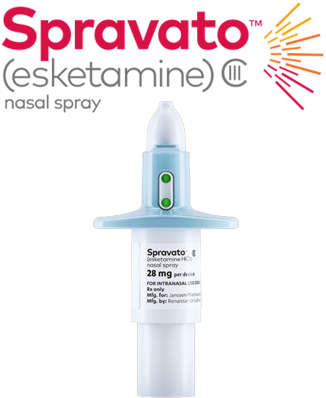Talk Therapy
What is Talk Therapy?
Talk therapy is a way to help people with depression and other emotional difficulties. Whether issues around coping with the stresses of daily life; the impact of past trauma, or loss of a loved one, talk therapy may help alleviate the symptoms and help you find your way to a better, more fulfilling life. Talk therapy for depression can sometimes be combined with medication to enhance the effectiveness of both.



How does talk therapy work?
At a talk therapy center, the therapy can be one on one, combined with family or spouse, or conducted in a group setting. Both children and adults can benefit from psychoanalysis for depression. Sessions are typically held once a week for about 30 to 50 minutes per session. It is important that both patient and therapist are actively involved. This builds the trust and relationship between client and therapist that is essential to benefiting from talk therapy. The number of sessions at a talk therapy center depends on multiple factors. It can be brief when dealing with immediate issues, or it could be long-term when dealing with longstanding and complex issues. The goals and treatment plan incorporating how often and how long to meet is a joint effort between client and therapist.
Will medication be a part of talk therapy?


What are some Types of Talk Therapy?
Psychiatrists and other mental health professionals use several types of talk therapy for depression. The choice of the therapy type depends on a collaborative effort on both therapist and patient’s part. During psychoanalysis for depression, therapists may combine elements from different approaches to best meet the needs of the person receiving treatment.
Here are a few examples of talk therapy:
- Cognitive Behavioral Therapy (CBT) helps people identify and change thinking and behavior patterns that are harmful or ineffective, replacing them with more accurate thoughts and functional behaviors. It often involves practicing new skills in the “real world.” CBT can be helpful in treating a variety of disorders, including depression, anxiety, trauma related disorders, and eating disorders.
- Interpersonal Therapy (IPT) is a short-term form of treatment. It helps patients understand underlying interpersonal issues that are troublesome, like unresolved grief, changes in social or work roles, conflicts with significant others, and problems relating to others. It can help people learn healthy ways to express emotions and ways to improve communication and how they relate to others. It is most often used to treat depression.
- Dialectical Behavior Therapy is a specific type of CBT that helps regulate emotions. It is often used to treat people with chronic suicidal thoughts and people with borderline personality disorder, eating disorders and PTSD. It strives to teach new skills to help people take personal responsibility to change unhealthy or disruptive behavior. It can involve both individual and group therapy.
- Psychodynamic Therapy is based on the idea that behavior and mental well-being are influenced by childhood experiences and inappropriate repetitive thoughts or feelings that are unconscious (outside of the person’s awareness). A person works with the therapist to improve self-awareness and to change old patterns so they can more fully take charge of their life.
- Supportive Therapy uses guidance and encouragement to help patients develop their own strategies to deal with the daily stresses of life. Supportive therapy can help you build self-esteem, reduce anxiety, and strengthen your coping mechanisms.
Frequently Asked Questions
Major depressive disorder is a condition which lasts two or more weeks and interferes with a person’s ability to carry out daily tasks and enjoyed activities that previously brought pleasure. This condition affects approximately 16 million American adults, or about 6.7 percent of the U.S. population age 18 and older.1
The exact cause of depression is not known, but leading research in Neuroscience points to an imbalance in the brain’s neurotransmitters as the manifestation of depression. Neurotransmitters are chemical messengers that send signals between brain cells. A person’s genetic make-up and life history may also determine a person’s tendency to become depressed.
In 2016 a study conducted by the Center for Behavioral Health Statistics and Quality reported that major depressive disorder will affect approximately 16 million American adults (about 6.7% of the US population) in a given year. 1
Yes. The National Institute of Mental Health maintains that, “Depressive illness can often interfere with normal functioning and cause pain and suffering not only to those who have the disorder, but to those who care about them. Serious depression can destroy family life as well as the life of the ill person.” A national study of depression found that nearly all the respondents who reported a major depressive disorder also reported that their social and/or work lives were negatively affected by their illness.1 In 2010, the economic burden of depression was estimated at $210 billion in the US2 and depression was the second leading cause of disability, accounting for almost 20% of all years of life lost to disability and premature death.3 Depression can also be a lethal disease. Each year in the US, over 30,000 people die by suicide, 60% of whom suffer from depression.4, 5
There is no known cure for depression but with effective clinical depression psychotherapy, many patients can remain symptom free. Approaching an efficient depression treatment center like Sozo Centers is the right step towards your mental health treatment.

